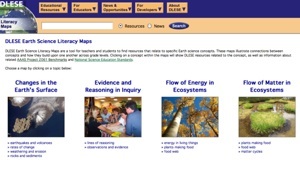While we are all glued to the television this week to watch the exciting outcomes of Winter Olympics competition, it’s also a great opportunity to explore the science behind the sports and winter weather. Collections from NSDL and from the National Science Foundation can help you do just that. The National Science Foundation and NBC Learn have collaborated to produce Science of the Olympic Winter Games, a 16-part video series that explores the science behind individual Olympic events, including downhill and aerial skiing, speed skating and figure skating, curling and hockey, and ski jumping, bobsledding and snowboarding. NSDL’s Science of Winter collection offers interactives, videos, and lesson plans on a variety of winter and winter sports phenomena:
- Ripples on icicles (high school, lower undergrad, general)
- The Effect of Gravity on Motion (luge) - (K12, lower undergrad, general)
- The Physics Classroom: Energy Transformation for Downhill Skiing (K12, lower undergrad, general)
- A Winter’s Tale (K-12)
- Winter Olympics Physiology & Psychology (K12, lower undergrad, general)
- The Science of Hockey (general)





Posted in Topics: General
Comments (2) »